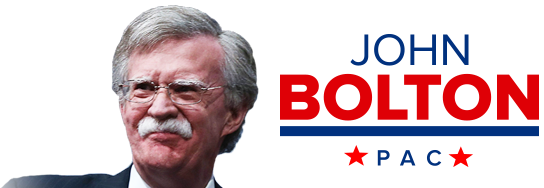President Trump is reportedly considering(https://www.nbcnews.com/politics/national-security/rubio-working-major-changes-national-security-council-rcna206658) major alterations to the National Security Advisor’s role and the National Security Council staff. One administration source said(https://www.cnn.com/2025/05/14/politics/rubio-national-security-council-overhaul) the “NSC as we know it is done.” The potential changes center apparently on reducing the staff and its responsibility for developing and coordinating policy formulation, particularly long-range policy, and making it an implementer of Mr. Trump’s directives.
If executed, such changes will affect not merely the staff, but the NSC process itself. Ignoring history’s lessons, reflecting instead Mr. Trump’s aversion to coherent strategy and policy, the proposals would seriously harm both the administration’s already haphazard decision-making process and the president’s ability to manage the enormous foreign-policy, defense, intelligence, and homeland-security bureaucracies. The ultimately critical factor in presidential national-security strategy is judgment, but a properly functioning NSC staff can help provide the necessary information and options foundational to the sound exercise of judgment.
The 1947 National Security Act established the NSC to help presidents get their arms around the new and enlarged departments and agencies required to cope with a complex, menacing international environment, the likes of which we had never before experienced. Because presidents differ in their work habits, the NSC structure was intended to be flexible, varying in size and shape over time. But through often painful lessons in recent decades, until Trump 47, a broad consensus formed over an optimal approach.
Dwight Eisenhower was the first president to pay real attention to NSC staffing, which he structured along lines comparable to his military experience. John Kennedy rebelled against what he saw as excessive rigidity, at least until the Bay of Pigs, the discouraging and intimidating 1961 Vienna summit with Nikita Khrushchev, and the Cuban Missile Crisis convinced him that structure wasn’t so bad after all.
The personalized National Security Advisor roles of Henry Kissinger and Zbigniew Brezinski in the Nixon/Ford and Carter administration respectively have received enormous attention, but, in between, Brent Scowcroft was building the current NSC model. Scowcroft would perfect the model under George H.W. Bush, confronting Saddam Hussein’s invasion of Kuwait, the Soviet Union’s collapse, and the start of the post-Cold War era.
Scowcroft devised a system to coordinate and control the flow of decision-making, topped by Cabinet-level NSC meetings chaired by the President; “principals” meetings, also cabinet-level, led by National Security Advisors; “deputies” meetings attended by deputy- and undersecretary-level officials; down to meetings of assistant and even deputy assistant secretaries. Some describe this five-tiered edifice as too bureaucratic, but Bush 41 and others proved it could move as fast and comprehensively as exigent circumstances warranted.
The plan embodied the principal of subsidiarity, with decisions made at the lowest level achievable, with only the most important issues occupying the attention of the president and his top advisors. This system’s substantive outcome was providing the ultimate decision makers with all the pertinent data, the full range of available options, the pros and cons of each, and forward thinking about implementation, counter-moves by adversaries and allies, and possible US responses.
To Scowcroft also goes considerable credit for repairing the NSC after the Iran-Contra crisis, its worst mistake, during which NSC staff became operational. Since then, almost all agree the NSC should coordinate, and implementing departments and agencies should implement. Not all have adhered perfectly to this maxim.
Importantly, the size of the NSC staff is solely a dependent variable. Size follows mission. Setting a staff level before deciding its tasks is backwards. Moreover, comparing current staff levels to prior administrations is inapposite for several reasons. In bygone days, only “professionals,” not “administrative” staff, were counted; Situation Room staffers were sometimes included in NSC numbers, sometimes not; and, pre-9/11, there were almost no “homeland security” staff anywhere in the White House.
On the president personally, Scowcroft ‘s model bestowed one key advantage: creating interagency staff contacts reaching into deep bureaucratic depths gave far greater insight into potential agency agendas and disagreements before they rose to higher levels, thereby reducing the risks of bureaucratic obfuscation and delay. Similarly, presidents today have significantly enhanced capabilities to monitor how their decisions are implemented down below in the operating agencies. A dramatically constrained NSC staff would simply not have such abilities.
Everyone knows presidents make the ultimate decisions. But will they make the best-informed decisions, in widely varying contexts, or will they merely follow their own neuron flashes? The animus now directed at Scowcroft’s system largely emanates from fear of the bureaucracy (“deep state”’ to Trump acolytes). The real question is whether top decision-makers will run the bureaucracy or whether the bureaucracy runs them. If the highest levels fail to drive lower levels, the fault lies more with inadequate top officials who lack knowledge, experience, and resolve.
The NSC system has its faults, but turning its staff into liege-men and -women will not benefit America, or even Donald Trump.
This article was first published in Wall Street Journal on May 19, 2025. Click here to read the original article.


